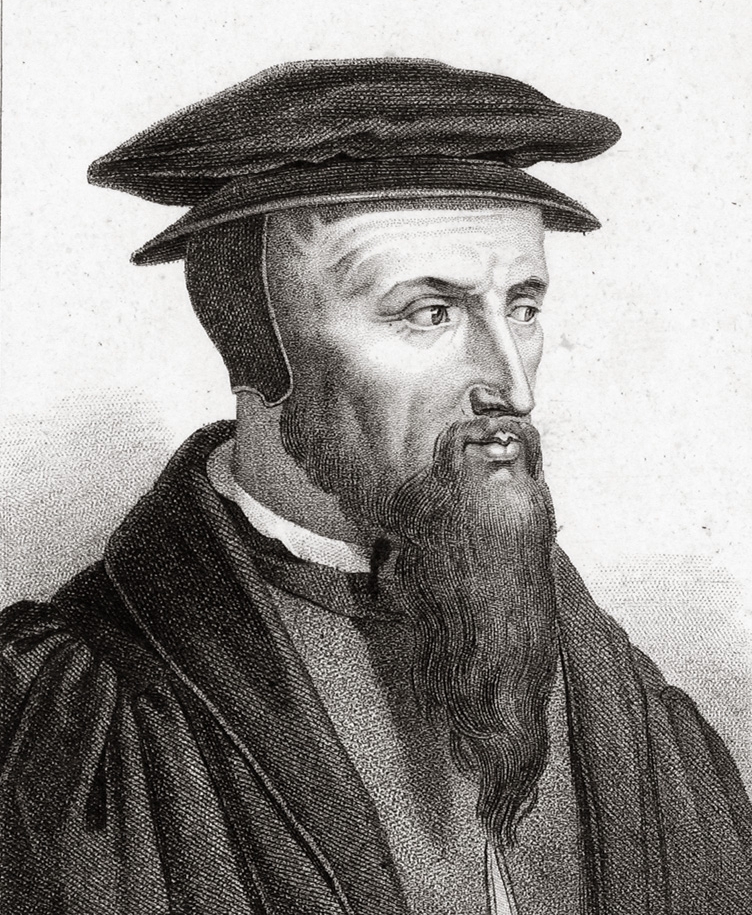Recovering our memory: John Calvin
Carl Laferton | 27 Aug 2013

Who: John Calvin
When: 1509-1564
Where: Geneva, Switzerland
So what?
John Calvin is the Marmite of church history – people tend either to love him or hate him. The bare facts are: he was brought up a French Catholic… studied to become a priest and then a lawyer in Paris… became a convinced Protestant… wrote a letter to the King of France to defend Protestants from the charge of being rebels, and attached to it a book about Protestant doctrine (the famous Institutes)… and ended up as a pastor in Geneva with some influence, then great influence, over the church in that city-state.
Here are a few facts you may not know, or false truths you thought you knew, about Calvin.
-
He was not the first person (outside the Bible!) to teach predestination; neither was that his main concern. A millennium before, Augustine had set out in detail the truth that God chooses sinners who he will save, rather than sinners choosing to be saved by God; and even in his day, Augustine wasn’t being particularly original. In the 1500s, most leaders of both Protestant and Catholic sides believed in predestination.
-
Calvin’s Institutes began life as an “apology”—a defence of Protestant belief. Having sent an initial copy to the King of France, he then reworked it throughout his life, adding and refining. Its main concern was to show that what we call Protestant Reformed theology was actually the theology of the early church.
-
Calvin was not cold, unfeeling or divisive, as his 21st-century image sometimes suggests. He sought to build bridges among Protestants (Luther’s successor, Philip Melanchthon, was a personal friend). He was absolutely heart-broken by the death of his wife, and never really got over it, writing: “Mine is no common grief. I have been bereaved of the best companion of my life”. And his Institutes and sermons are full of passion, warmth and a great, at times almost overwhelming, love for God.
-
He was never in charge of Geneva. It was through his preaching, teaching and example that he held such influence, reshaping both the church and the city.
-
Calvin has become notorious for supporting the execution in Geneva of a heretic, the Trinity-denying Michael Servetus. It is worth bearing in mind: every state in Europe at the time saw heresy as a civil crime (a bit like treason in our time); Calvin did not order Servetus’ death, the city council (on which he did not sit) did; this was a time when Protestants all over Europe’s Catholic territories were being burned, whereas Calvin “merely” banished Catholics from Geneva. We may disagree with Calvin’s views on the right punishment for heresy, but if we condemn him, we must condemn virtually every Catholic and Protestant leader for several centuries before and after Calvin lived.
Perhaps we need to rescue Calvin from the Marmite category. He was a sinner, saved by grace, who spent his life trying to apply God’s word to the church he led, the city he influenced, and the continent he lived in. He made mistakes, and he was greatly used by God. He shouldn’t be treated as the final authority in all matters; nor is the word “Calvinism” be used as a negative term. And, just perhaps, we should read the Institutes (long, but well worth it) before we lionise or criticise their author.
Good quote: “However many blessings we expect from God, his infinite liberality will always exceed all our wishes and our thoughts.”
Random fact: John Calvin wasn’t really called John Calvin. His birth name was “Jehan Cauvin”.
